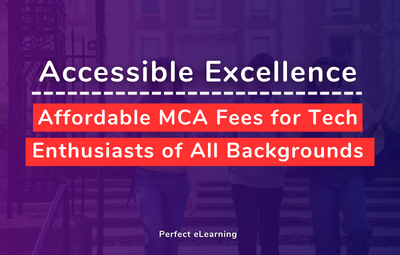

Are you considering pursuing an MBA degree but worried about the financial burden it may bring? Don't let the cost deter you from pursuing your dreams. Financial aid and scholarships for MBA students can provide valuable opportunities to fund your education and ease the financial strain. In this article, we will explore various funding options and opportunities available specifically for MBA students. Whether you're a prospective student or already enrolled, this comprehensive guide will help you navigate the world of financial aid.
Understanding Financial Aid for MBA Students
What is financial aid?
Financial aid refers to any assistance provided to students to help them pay for their education. It includes a wide range of resources such as scholarships, grants, loans, and work-study programs. The purpose of financial aid is to make education accessible and affordable for students, regardless of their financial background.
The importance of financial aid for MBA students
Pursuing an MBA degree is a significant investment in your future, but it can come with a hefty price tag. Financial aid plays a crucial role in making this advanced degree attainable for students from diverse backgrounds. It can alleviate financial burdens, reduce the need for excessive borrowing, and enable students to focus on their studies without constant financial worry.
Types of Financial Aid for MBA Students
Scholarships for MBA Students
Scholarships are one of the most sought-after forms of financial aid for MBA students. These merit-based awards are typically offered by universities, foundations, organizations, and even corporate entities. Scholarships can cover a portion or the entire cost of tuition, and they are often awarded based on academic achievement, leadership potential, or specific criteria set by the scholarship provider.
University-specific scholarships
Many universities offer their own scholarships for MBA students. These scholarships can vary in terms of eligibility criteria, application process, and the amount of funding provided. It's essential to research and explore scholarship opportunities specific to the MBA programs you're interested in.
External scholarships
Numerous external organizations and foundations provide scholarships for MBA students. These scholarships may focus on particular fields of study, underrepresented groups, or specific career aspirations. Conduct thorough research and check with professional organizations and foundations related to your area of interest to discover potential scholarship opportunities.
Grants and Fellowships for MBA Students
Grants and fellowships are another form of financial aid that does not require repayment. They are often awarded based on merit or specific criteria, and they can provide substantial financial support for MBA students.
Research grants
Research grants are awarded to MBA students who are engaged in research projects or studies that contribute to their field of study. These grants can cover research-related expenses, such as data collection, travel, or equipment.
Fellowships
Fellowships are prestigious awards given to outstanding students, providing financial support along with additional benefits such as mentoring, networking opportunities, and academic enrichment. Some fellowships may require a commitment to work in a specific industry or organization for a certain period after graduation.
Loans and Student Loans for MBA Students
Loans are a common form of financial aid that requires repayment, usually with interest. While loans can help bridge the gap between available funds and the cost of education, it's crucial to borrow responsibly and consider the long-term financial implications.
Federal student loans
MBA students may be eligible for federal student loans offered by the government. These loans often have lower interest rates and more flexible repayment options compared to private loans. It's advisable to explore federal loan options first before considering private loans.
Private loans
Private loans are provided by banks, credit unions, and other financial institutions. They can be an option for students who need additional funding beyond what federal loans cover. However, private loans may have higher interest rates and less favorable terms than federal loans. Careful evaluation and comparison of different lenders are crucial to secure the best possible terms.
Work-Study Programs for MBA Students
Work-study programs offer MBA students an opportunity to earn money while gaining practical experience in their field of study. These programs typically involve part-time employment on or off-campus, allowing students to contribute to their education expenses.
Employer Sponsorship for MBA Students
Many employers recognize the value of an MBA degree and offer sponsorship programs to support their employees' pursuit of higher education. Employer sponsorship may come in the form of tuition reimbursement, scholarships, or company-funded loans. If you're currently employed, it's worth exploring if your employer provides any financial assistance for MBA studies.
Tips for Finding and Applying for Financial Aid
1. Start early: Begin researching financial aid options as soon as you decide to pursue an MBA degree.
2. Explore all possibilities: Look for scholarships, grants, loans, and work-study programs that align with your goals and qualifications.
3. Research eligibility criteria: Pay attention to the requirements and deadlines for each financial aid opportunity.
4. Prepare a strong application: Polish your resume, write compelling essays, and gather all necessary documents to present yourself effectively.
5. Seek guidance: Reach out to financial aid offices, mentors, or professional networks for advice and support during the application process.
Conclusion
Pursuing an MBA degree can be a transformative journey, both personally and professionally. However, financing your education shouldn't be a roadblock on your path to success. By exploring the various financial aid options and scholarships available for MBA students, you can unlock opportunities to fund your education and invest in your future.
FAQs (Frequently Asked Questions)
Q: Can I get a scholarship for an MBA program if I already have work experience?
A: Yes, many scholarships for MBA students consider work experience as a valuable criterion for eligibility. Some scholarships specifically target applicants with significant professional experience.
Q: Are there scholarships available for international students pursuing an MBA?
A: Yes, there are scholarships specifically designed for international students pursuing an MBA degree. These scholarships can be offered by universities, organizations, or government institutions.
Q: Are grants and fellowships only available for full-time MBA students?
A: Grants and fellowships can be available for both full-time and part-time MBA students. However, eligibility criteria may vary depending on the specific program and institution.
Q: Can I apply for multiple scholarships and grants simultaneously?
A: Yes, it's generally encouraged to apply for multiple scholarships and grants to increase your chances of receiving financial aid. Ensure that you meet the eligibility requirements and carefully manage your application deadlines.


